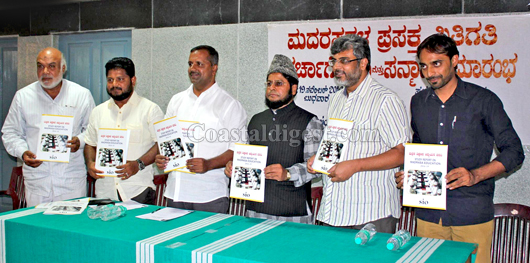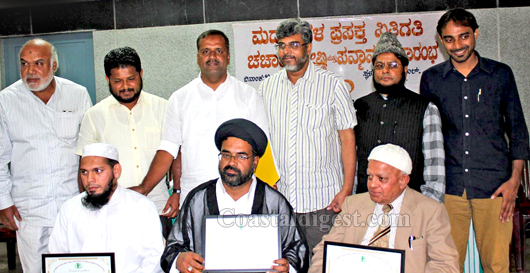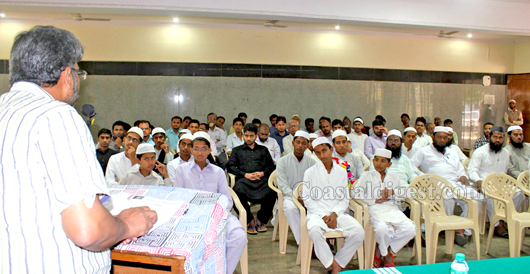Bengaluru, Nov 23: The Karnataka zone of the Student Islamic Organisation of India (SIO) has come up with various recommendations in order to upgrade Madrasa education system and promote Arabic language in the region.
The survey report recently released by the SIO after conducting survey of 55 Madrasas from different parts of the state, recommends few action points for the community leaders, Madrasa managements as well as state government.

The report also expresses concern over the malign campaign against Madrasa. “Madrasa in Arabic means school. Today Madrasa is the most maligned term. There may be many reasons for it. However Madrasa was the cradle of new inventions nay new civilization during the middle ages. In India the contribution of Madrasa towards educational and political revival cannot be denied. It was the springboard of freedom movement. It was the abode of intellectuals, poets, writers and revolutionaries,” the report says.
In the past Madrasas were places of new initiatives and harbingers of inventions. However today they are confined to religious education, it said.
As per the records of Karnataka Government there are more than 960 Madrasas in the State. The government might have counted only Maktabs (Madrasa meant for small children) and excluded Pallidars attached to Masjids, says the report questioning the accuracy of the government's survey.
The recommendations are as follows:
1. To establish a non-governmental Madarasa regulating body constituting all schools of thoughts.
2. A committee to study the infrastructure requirements of Madarasas has to be established.
3. To appoint physical education teachers, providing sports equipments and to ensure sufficient play grounds has to be given prominence. Inter Madrasa sports must be encouraged.
4. Arabic learning must be encouraged. Students must be encouraged to speak and converse in Arabic within the campus.
5. As Arabic attains prominence even in terms of the geo-political situation of Middle Eastern and African countries including all Muslim countries, the Government must make provision to include Arabic second and third slots of language selections.
6. Arabic studies Chair has to be opened in all the Universities. All the Universities in Karnataka should commence BA in Arabic courses. Madarasa students must be made eligible to join these courses. MA courses must be commenced as a follow up for these courses.
7. The teaching of mathematics, science, social studies, Kannada and computer education must be made compulsory in Madarasas.
8. There must be provision to hold social and cultural functions at Madarasas.
9. Teaching of Kannada and English language to be made compulsory.
10. Graduate trained teachers who are having Religious degrees may be appointed as faculty.
11. Prathibha Karanji programmes organized by the Government of Karnataka at the state level may be extended to the Madarasas.
12. Time duration has to be fixed for the graduation course (aleemiyath), like all other educational institutions.
13. To fix a salary of minimum Rs 15,000 for the teachers.
Six model Madrasas honoured
During the course of the two-phase survey, the SIO team also recognized six model Madrasas out of 55 targeted Madrasas. The six among 55 Madrasas are in relatively good status maintaining quality, diversity and creativity in education with holistic approaches. In order to recognize these efforts and motivate other Madrasas to initiate healthy discussions and initiatives on this subject SIO Karnataka Zone honoured these six model Madrasas at a programme recently held in Bengaluru.
Karnataka Health and Family Welfare Minister U T Khader formally felicitated the representative of these Madarasa and lauded their efforts. Educationist Dr. Neeranjan Aradhya, Scholar Muhammed Kunni, Convenor of Majlis ul-Ulema Karnataka Maulana Waheeduddin Khan Umri, Mahaz Secretary SM Iqbal, SIO Zonal President Thouseef MY and others were present on the occasion.
The six model Madrasas are: Madarasa Baithul Uloom, Sindagi, Madarasa Ziya-ul-Uloom, Kandlur, Iqra Arabic School, Mangalore, Houze- Ilmiya-Baqirul-Uloom, Alipur, Jamiya Islamiya, Bhatkal, Darul Umoor (Tipu Sulthan Study and Research Center).








Comments
Add new comment